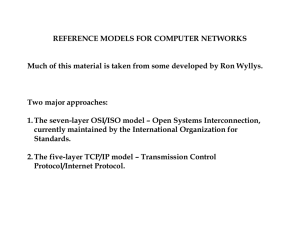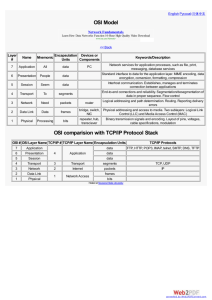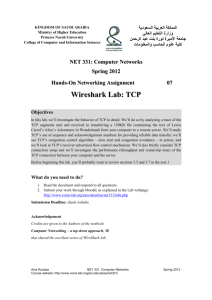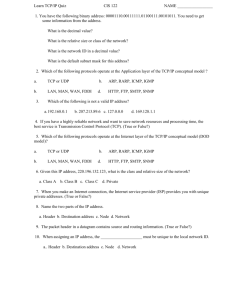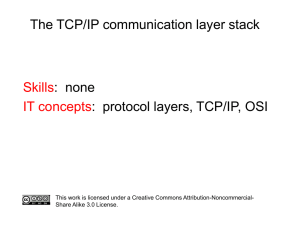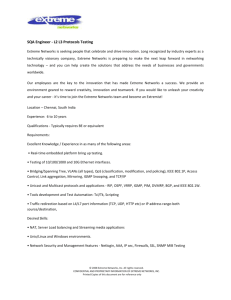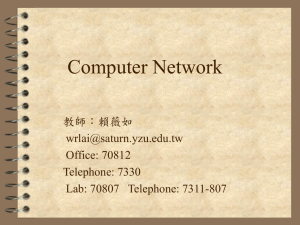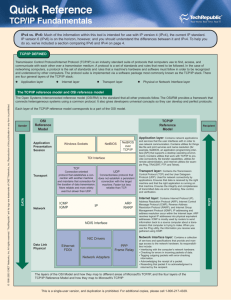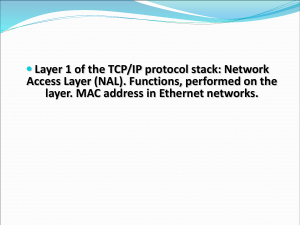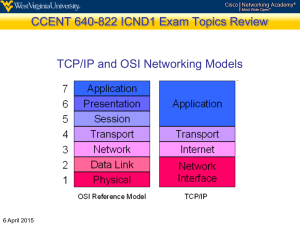Chapter 19 – Why The Internet Works Well
advertisement
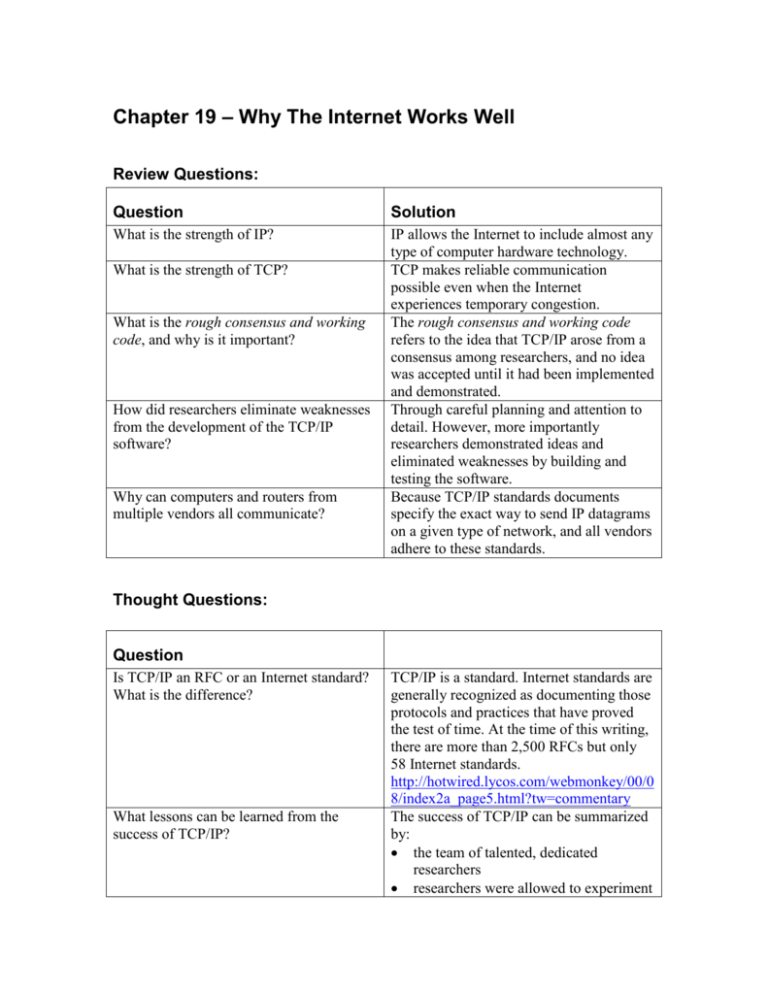
Chapter 19 – Why The Internet Works Well Review Questions: Question Solution What is the strength of IP? IP allows the Internet to include almost any type of computer hardware technology. TCP makes reliable communication possible even when the Internet experiences temporary congestion. The rough consensus and working code refers to the idea that TCP/IP arose from a consensus among researchers, and no idea was accepted until it had been implemented and demonstrated. Through careful planning and attention to detail. However, more importantly researchers demonstrated ideas and eliminated weaknesses by building and testing the software. Because TCP/IP standards documents specify the exact way to send IP datagrams on a given type of network, and all vendors adhere to these standards. What is the strength of TCP? What is the rough consensus and working code, and why is it important? How did researchers eliminate weaknesses from the development of the TCP/IP software? Why can computers and routers from multiple vendors all communicate? Thought Questions: Question Is TCP/IP an RFC or an Internet standard? What is the difference? What lessons can be learned from the success of TCP/IP? TCP/IP is a standard. Internet standards are generally recognized as documenting those protocols and practices that have proved the test of time. At the time of this writing, there are more than 2,500 RFCs but only 58 Internet standards. http://hotwired.lycos.com/webmonkey/00/0 8/index2a_page5.html?tw=commentary The success of TCP/IP can be summarized by: the team of talented, dedicated researchers researchers were allowed to experiment Even though the federal government declared that OSI would be the protocol of the Internet, why did TCP/IP persist? Trivia: A married couple working at Stanford developed an improved way to connect different networks together. They operated the multi-million dollar company, Cisco, from their house until venture capitalists took over and propelled it to a multi-billion dollar business. Where are these two people today and what are they doing? Does it appear that TCP/IP will continue as the dominant protocol of the Internet? Why or why not? without economic payoff built the Internet to operate efficiently each part of the Internet worked well separately The U.S. government proclaimed OSI was the protocol the Internet was going to use, but it never happened. Too many networks were already using TCP/IP, and it was too much trouble to switch. Europe mandated using OSI, but the universities were switching over to TCP/IP anyway because they didn't want to cut themselves off from the giant Internet in the United States. http://www.pbs.org/opb/nerds2.0.1/networ king_nerds/tcpip.html Cisco, founded by husband and wife Len Bosack and Sandy Lerner, experimented with connecting their two detached networks located in two different buildings on campus. With the help of two other Stanford staff members, Bosack and Lerner ran network cables between the buildings and connected them, first with bridges and then with routers. Bosack funds a company in Seattle that studies extra-terrestrial intelligence, and Lerner bought an English manor where she started a cosmetic company. http://www.forbes.com/forbes/97/0825/600 4058a.htm http://www.seti.org/ Answers will vary but should point to the need for faster transmission of video technology.
